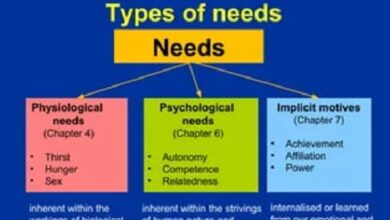What is Compassion fatigue with symptoms and how to prevent it
Compassion fatigue
When we see a sick or vulnerable person, our first reaction is to try to help them in every possible way. In addition to the complexity that this results in, being present and offering possibilities to relieve anguish can be extremely rewarding, however, it can affect us beyond expectations. Developing high degrees of empathy is not always beneficial, as we put all our energy into others and are exhausted. In the field of mental health, professionals often experience this compassion fatigue that affects quality of life.
Explanation
It is an anxiety disorder that is characterized by the presence of a high level of stress caused by contact with emotionally suffering people. Although this can happen in any situation of daily life, it is more frequent in professions that aim to offer emotional containment. For this reason, mental health professionals are the most affected by this clinical condition.
To better understand what it is, you need to know when it appears. This condition manifests itself due to the tiredness that comes with feeling compassion for one or more people over a prolonged period of time.
Symptoms of Compassion Fatigue
It manifests itself in many ways , both physical and psychological. In this topic, we will talk about the most common symptoms of it:
- Fear .
- Catastrophic thoughts about a particular subject.
- Lack of physical and mental energy.
- Feeling unwell.
- Anxiety.
- Stress. Discover the types of stress and their symptoms in this article.
- Inability to generate a healthy distance with another person.
- Nervous tension.
- Alert state.
- Excessive sweating.
- Sleep changes.
In addition to the symptoms described above, it is important to consider that the presence of any of these symptoms in isolation does not necessarily represent compassion fatigue. The diagnosis must be carried out by a mental health professional who will be in charge of assessing the particular characteristics of each patient.
Consequences
As might be anticipated, it has some adverse effects that must be taken into account when treating it. Next, we’ll talk about the consequences of compassion fatigue:
- Decreased satisfaction in several areas of daily life.
- Constant worries.
- Irritability .
- Difficulty sustaining attention.
- Insomnia.
- Insecurity.
How to prevent compassion fatigue
Despite the difficulties that compassion fatigue brings, there are factors that can lessen the negative effects it causes . Next, we’ll show you how to prevent compassion fatigue:
- Psychological therapy : the main tool to counteract the incidence of compassion fatigue is to turn to a mental health professional and begin psychological treatment. In this space, personal qualities are reflected and goals are set to improve quality of life. Among the most important therapies are cognitive therapy and psychoanalysis. Regarding the first, the thoughts, emotions and behaviors that prevent creating a healthy and necessary distance from other people’s pain are addressed. On the other hand, psychoanalysis addresses situations from the past that influence the attitudes that foster compassion fatigue.
- Building social bonds : A support network decreases compassion fatigue. Within the established social group, it is possible to reduce the levels of stress caused by work, in which one is exposed to the suffering of others.
- Organizing priorities : in general terms, caring for people in vulnerable situations causes fatigue that can sometimes be excessive. In some people, this can lead to putting others first and forgetting about yourself. Reflecting on this and valuing yourself is a key aspect of preventing compassion fatigue.




